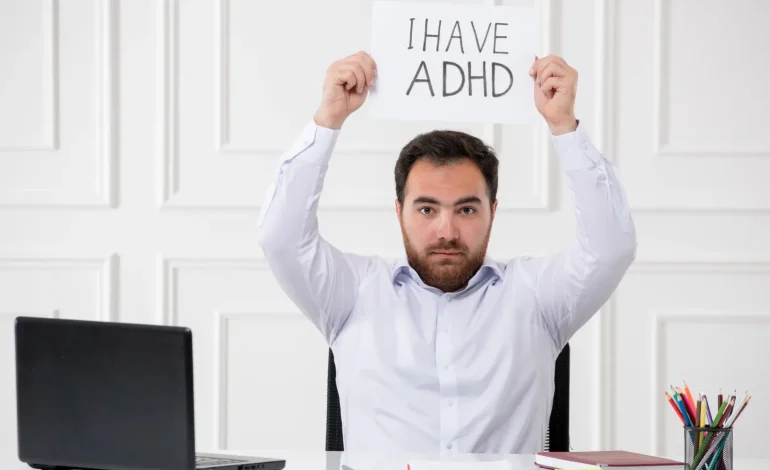A recent study by Ohio State University has found that one in four US adults suspect they may have undiagnosed attention-deficit/hyperactivity disorder (ADHD).
However, only 13% of these individuals have taken the step to discuss their concerns with a healthcare provider.
ADHD is a developmental disorder characterized by symptoms of inattention, hyperactivity, and impulsivity. According to researchers, an estimated 4.4% of adults aged 18 to 44 have been diagnosed with the disorder. The survey, which included responses from 1,006 adults, indicates a growing awareness of ADHD, particularly among younger generations. Many adults realize they may have ADHD when their children are diagnosed, leading them to recognize similar symptoms in themselves.
Psychologist Justin Barterian, a clinical assistant professor at Ohio State University, noted that conditions such as anxiety and depression often present symptoms that overlap with ADHD, which can complicate proper diagnosis and treatment.
“The wrong treatment can make things worse instead of helping that person feel better and improving their functioning,” he stated.
Dr. Robert Dicker, associate director of child and adolescent psychiatry at Zucker Hillside Hospital, emphasized that it is common for parents to disclose their struggles with ADHD symptoms after their children are diagnosed. He noted that many adults were dismissed in their childhood when they sought help for their symptoms, leading to feelings of stigma and disbelief.
ADHD tends to have a familial component, with genetics playing a significant role. Environmental factors, such as brain injuries, premature birth, and lead exposure, can also increase the likelihood of being diagnosed with ADHD. Social media has recently become a platform for sharing information about ADHD, with videos on platforms like TikTok helping to raise awareness about the condition. However, Barterian cautioned that while these discussions can reduce stigma, they may also lead to misdiagnoses, as many video creators are not mental health professionals.
In light of the growing awareness and self-diagnosis trend, Barterian encourages individuals who suspect they may have ADHD to seek professional evaluation. Symptoms can manifest differently between adults and children; adults often experience challenges with memory and concentration, while children may display more hyperactive behavior.
The survey results show that younger adults are more likely to suspect they have ADHD and are more proactive in seeking help. The presence of high-profile individuals openly discussing their ADHD diagnoses has also contributed to increased awareness.
Experts stress the importance of accurate diagnosis and treatment. Current treatment options typically include stimulants to enhance focus and concentration, as well as therapy to develop coping strategies. The study highlights the need for a thorough evaluation to distinguish ADHD from other mental health conditions that may present similar symptoms.
With input from New York Post, the Daily Mail, and Newsweek.









